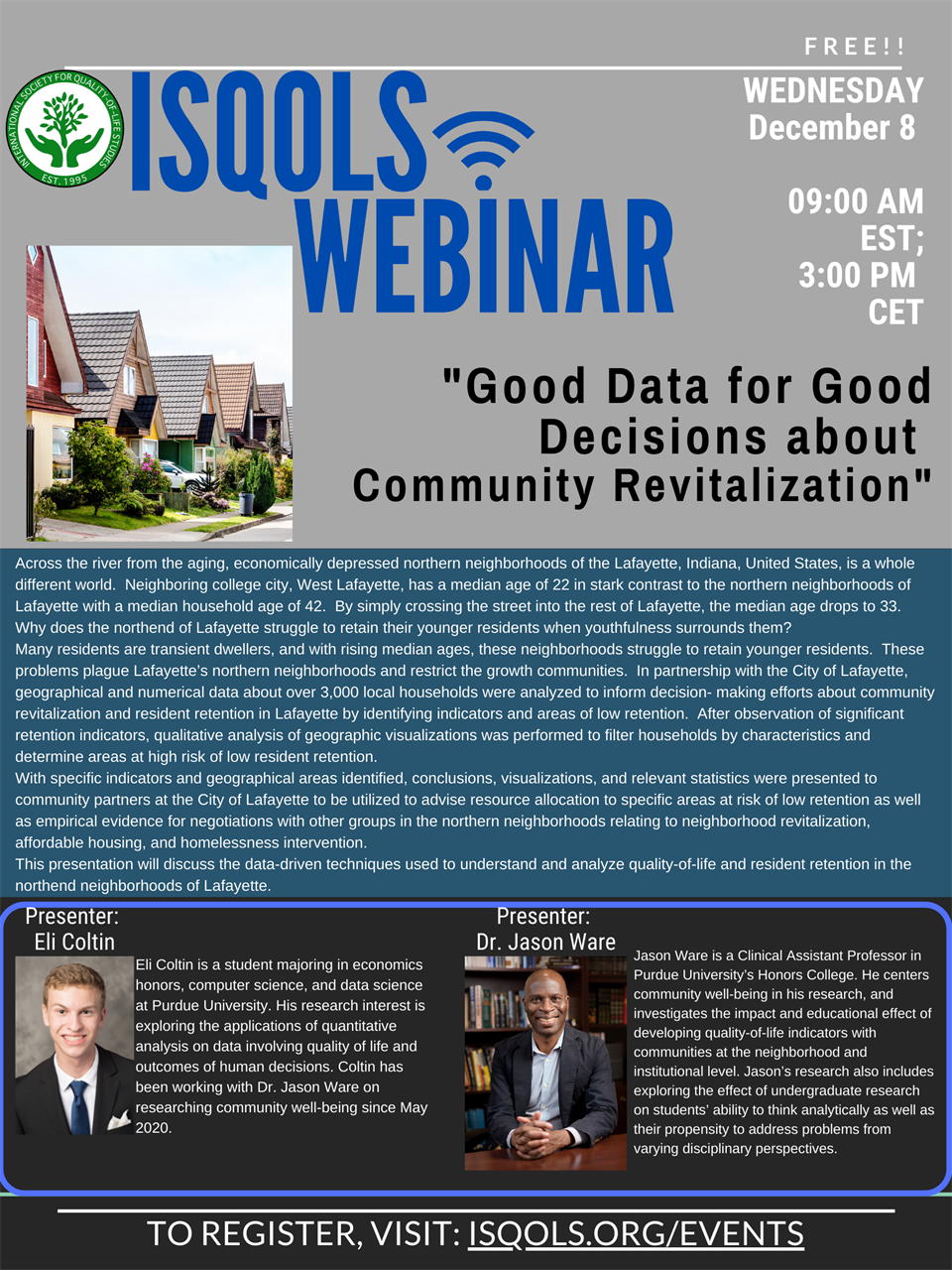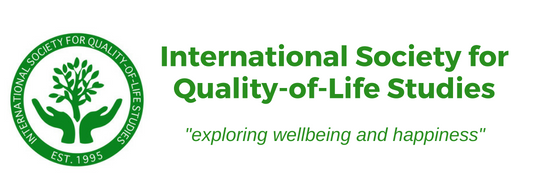ISQOLS WEBINAR:
Good Data for Good Decisions about
Community Revitalization
WEDNESDAY, DECEMBER 8
09:00 AM CET
3:00 PM CET
FREE
Across the river from the aging, economically depressed northern neighborhoods of the Lafayette, Indiana, United States, is a whole different world. Neighboring college city, West Lafayette, has a median age of 22 in stark contrast to the northern neighborhoods of Lafayette with a median household age of 42. By simply crossing the street into the rest of Lafayette, the median age drops to 33. Why does the northend of Lafayette struggle to retain their younger residents when youthfulness surrounds them?
Many residents are transient dwellers, and with rising median ages, these neighborhoods struggle to retain younger residents. These problems plague Lafayette’s northern neighborhoods and restrict the growth communities. In partnership with the City of Lafayette, geographical and numerical data about over 3,000 local households were analyzed to inform decision- making efforts about community revitalization and resident retention in Lafayette by identifying indicators and areas of low retention. After observation of significant retention indicators, qualitative analysis of geographic visualizations was performed to filter households by characteristics and determine areas at high risk of low resident retention.
With specific indicators and geographical areas identified, conclusions, visualizations, and relevant statistics were presented to community partners at the City of Lafayette to be utilized to advise resource allocation to specific areas at risk of low retention as well as empirical evidence for negotiations with other groups in the northern neighborhoods relating to neighborhood revitalization, affordable housing, and homelessness intervention.
This presentation will discuss the data-driven techniques used to understand and analyze quality-of-life and resident retention in the northend neighborhoods of Lafayette.
PRESENTERS:
Dr. Jason Ware:
Jason Ware is a Clinical Assistant Professor in Purdue University’s Honors College. He centers community well-being in his research, and investigates the impact and educational effect of developing quality-of-life indicators with communities at the neighborhood and institutional level. Jason’s research also includes exploring the effect of undergraduate research on students’ ability to think analytically as well as their propensity to address problems from varying disciplinary perspectives.
Eli Coltin
Eli Coltin is a student majoring in economics honors, computer science, and data science at Purdue University. His research interest is exploring the applications of quantitative analysis on data involving quality of life and outcomes of human decisions. Coltin has been working with Dr. Jason Ware on researching community well-being since May 2020.


